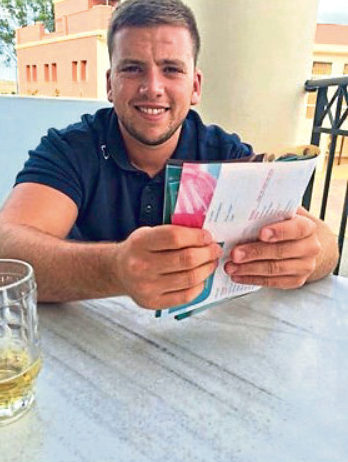The jury in the Steven Donaldson murder trial has retired to consider its verdicts.
Following 19 days of evidence during a case which got under way at the High Court in Edinburgh on April 1, the panel of eight women and seven men were sent out by trial judge Lord Pentland shortly after noon to begin their deliberations. Steven Dickie, Callum Davidson and Tasmin Glass all deny murdering 27-year-old Arbroath oil worker Mr Donaldson on June 6 or 7 last year.
Glass, 20, and Dickie and Davidson, both 24, all from Kirriemuir, face a single charge of arranging to meet Mr Donaldson at Kirriemuir’s Peter Pan playpark on June 6 or 7 last year, attacking him there, transporting him to Loch of Kinnordy, near Kirriemuir, where he was further attacked with a baseball bat, knife and a heavy bladed instrument, setting him and his car on fire and murdering him. Six other charges on the indictment involving Dickie and Davidson were dropped by the Crown earlier in the proceedings.
During the trial, the jury heard evidence from more than 50 witnesses.
All three accused took the stand to give evidence in their own defence in the trial’s closing stages.
The jury was also presented with seven joint minutes of evidence agreed by the Crown and defence, matters which the High Court heard shortened the trial’s duration by around a fortnight.
Lord Pentland told the jury that in considering the substantial amount of evidence before them they must “entirely put out of your minds any preconceptions or prejudices one way or the other.”
“You must not allow your judgment to be swayed at all by feelings of sympathy,” he said.
He said emotions of “disapproval or revulsion must be put entirely aside.”
The judge explained the concept of doctrine of concert, or art and part. “A common enterprise is not necessarily one planned in advance, on the contrary it can have occurred spontaneously,” he said.
Lord Pentland also explained the charge of culpable homicide, which Tasmin Glass’s senior counsel, Mark Stewart QC, had made reference to in his closing speech.
Culpable homicide, the judge said, occurred where the death of another person “has been caused by an unlawful act which is culpable or blameworthy.”
Lord Pentland added: “That unlawful act must be intentional, or at least reckless or grossly careless.”
